The North Star

Brief Synopsis
Cast & Crew
Lewis Milestone
Anne Baxter
Dana Andrews
Walter Huston
Walter Brennan
Ann Harding
Film Details
Technical Specs

Synopsis
In June 1941, in the small Russian farming village of North Star, pig farmer Karp briefly visits the home of Dr. Kurin, his cousin Anna and her children Clavdia and Grisha. Later, Karp chats with teenager Damian, who is enthusiastic about the next day's planned walking trip into the city of Kiev with Clavdia, Grisha, Damian's girl friend Marina and his older brother Kolya, an air pilot on leave. At Marina's home, her little sister Olga and parents, Rodion and Sophia, discuss that evening's plans for the village feast. Meanwhile, at Damian's home, his parents, Boris and Nadya, and Kolya are disturbed to hear news over the radio of German troop movements within Poland and the recent bombing of London. That evening the entire village takes part in unloading the supply train and celebrates the season in song and dance. The next morning the young people set out in high spirits on their hike to Kiev and soon meet up with Karp, who offers them a ride on his cart. They join a long line of carts headed for the city, but soon Karp and Kolya hear a distinctive sound, and when Kolya realizes it is the buzz of aircraft, he stops the caravan and tries to get everyone into the ditch as bombs rain down on them. After the planes pass over, the hikers discover several people have been killed and their own cart destroyed. In North Star, the villagers are going about their daily routine when the dive bombers abruptly attack, and Sophia watches with horror as Olga is caught in the strafing gunfire. As the planes depart, the village radio announces that the Germans have invaded Russia and the two countries are now officially at war. Boris, the village leader, gathers the survivors together and declares that the men must depart for the hills to take up guerrilla activities and the women and older people must remain behind to burn the village before the German army arrives. Rodion gives the village the oath of guerrillas before the men ride away. Boris then goes to the nearest army post to retrieve munitions for the guerrillas, but on his return he is strafed by another wave of planes. His truck turns over near where Damian, Kolya and the others are regrouping. Before dying, Boris instructs his sons to deliver the munitions to the guerrillas or North Star will be lost. After burying his father, Kolya helps load the gun supply onto two wagons, then departs to rejoin his air group. A village scout on horseback sees the advancing German army and reports to the women, who begin burning their houses. The Germans soon arrive in North Star and shoot several villagers to stop the burning, then question the survivors about Rodion's whereabouts. When none of the villagers respond, the soldiers torture Sophia, prompting Kurin to protest to the medical officer, Colonel von Harden, who explains that there are many unpleasant Nazi policies that must be acted upon. Meanwhile, as night falls, the hikers rest by the roadside, and as German scouts drive by, Grisha's dog darts out barking and three soldiers are dispatched to investigate. Damian and Karp send the others to harness the horses while they ambush the German soldiers and set off again. Early the next morning an exhausted Kolya is on his fourth bombing run with a novice pilot, who decides to strafe a German armoured division, but the plane is shot up and the pilot and co-pilot killed, forcing Kolya to take over. Realizing the plane is too damaged to land, Kolya crashes it into the tank line. Meanwhile, in North Star, the Germans have converted one remaining building into a hospital, where they force the village children to make blood transfusions for their wounded soldiers. Kurin, watching von Harden's cold efficiency, is bitterly shocked and attempts to save a young boy, who later dies in his arms. He takes the child's body to his father in the guerrilla hideout. Out in the forest, the hikers realize that the only route into North Star is across the road and they must cause a diversion to halt the German transport. Damian volunteers and, unknown to him, Clavdia follows, determined to overcome her fear. Both successfully bring the transport to a halt, allowing the carts to dash across further up the road, but when the Germans fire on the fleeing youths, Clavdia is mortally wounded. Damian is stunned by an exploding grenade and when he comes to, discovers he has been blinded. When Damian and Clavdia fail to return to the carts, Marina insists on looking for them, and she and Karp soon find the distraught Damian. Incensed by the murder of the village children who died as a result of the blood transfusions, the guerrillas decide they can no longer wait for the munitions and must attack. Rodion and a handful of guerrillas slip into North Star undetected and into a warehouse that stores barrels of gasoline, which they silently pour into the river and then ignite with grenades. As the guerrillas storm the town on horseback, armed only with clubs, the weary hikers reach the edge of town with the guncarts. A sentry rushes them into town, where the guerrillas immediately arm themselves and continue their attack. At the hospital Kurin berates von Harden for claiming to despise those he nevertheless serves, then kills him. Later, after driving the Germans out, the surviving villagers leave the smoking remains of North Star, vowing to make this the last war and to fight for a free world.

Director
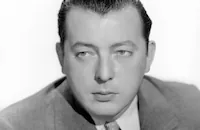
Lewis Milestone
Cast

Anne Baxter

Dana Andrews

Walter Huston
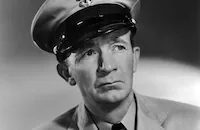
Walter Brennan

Ann Harding
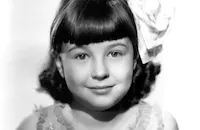
Jane Withers

Farley Granger

Erich Von Stroheim

Dean Jagger
Eric Roberts
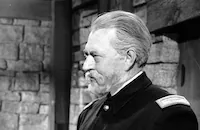
Carl Benton Reid

Ann Carter
Esther Dale
Ruth Nelson
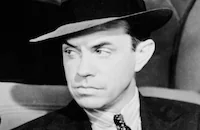
Paul Guilfoyle
Martin Kosleck
Tonio Selwart
Peter Pohlenz
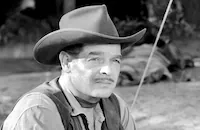
Robert Lowery
Gene O'donnell
Frank Wilcox
Loudie Claar
Lynn Winthrop
Charles Bates
George Lynn
Minna Phillips
Edmund Cobb
Martin Faust
Jack Perrin
Bill Nestell
Al Ferguson
Henry Hall
John Judd
Florence Auer
Bill Walker
Jerry Mickelsen
Clarence Straight
Grace Cunard
Bill Borzage
Emma Dunn
Sarah Padden
Teddy Infuhr
Grace Lenard
Joyce Tucker
John Bagni
John Beverly
Ferdinand Schumann-heink
Patricia Parks
Frederick Brunn

Ray Teal
Crane Whitley
Harry Strang
Lane Chandler
Serge Protzenko
Ilia Khmara
Constant Franke
Tommy Hall
Ronn Marvin
George Kole
Jack Vlaskin
William Sabbot
Clair Freeman
Eric Braunsteiner
Tamara Laub
Marie Vlaskin
Inna Gest
Crew
Ray Binger
Howard Bristol
Mcclure Capps
Aaron Copland
Perry Ferguson
Ira Gershwin
Samuel Goldwyn
Lillian Hellman
James Wong Howe
Fred Lau
David Lichine
Daniel Mandell
Walter Mayo
William Cameron Menzies
Thomas T. Moulton
Sam Nelson
Clarence Slifer
Robert Stephanoff
Zina Voynow

Photo Collections
Videos
Movie Clip




Film Details
Technical Specs

Award Nominations
Best Art Direction
Best Cinematography
Best Original Screenplay
Best Score
Best Sound
Best Special Effects
Articles
The North Star
The idea to make The North Star came initially as a request from President Franklin Delano Roosevelt to producer Sam Goldwyn. "In the winter of 1942, when the news from the Russian front was very bad indeed," explains actor Farley Granger in his 2007 autobiography Include Me Out: My Life from Goldwyn to Broadway, "Goldwyn received a message from President Roosevelt through Lowell Mellett, the chief of the Bureau of Motion Pictures of the Office of War Information, that America needed a film about our Russian allies." It would be a portrayal designed to gather sympathy for the Russian people and strengthen American support for the U.S. government's alliance with the Soviet Union. Goldwyn was very enthusiastic about the idea and rushed the film into production. Fueling his enthusiasm was also the fact that President Roosevelt's son, James, was an executive at Goldwyn's studio at the time.
Securing the talents of writer Lillian Hellman, who was under contract to him at the time, Goldwyn first considered making a straight documentary about the war in Russia. Hellman began planning a trip to Russia with director William Wyler to research the project. Hellman had traveled there once before in 1937 but had not been able to visit the Ukraine, which was the area in which she was most interested for any potential story. However, when Wyler unexpectedly enlisted in the Air Force, plans for a documentary were scrapped. "But Goldwyn and I - and Washington, behind the scene - went on talking about a Russian picture," said Lillian Hellman in her 1969 memoir An Unfinished Woman, "and finally came to what seemed like, and could have been, a sensible solution: we would do a simple, carefully researched, semi-documentary movie to be shot in Hollywood." Goldwyn hired Academy Award-winning director Lewis Milestone (All Quiet on the Western Front [1930]) to direct. Celebrated cinematographer James Wong Howe would be behind the camera, and Aaron Copland and Ira Gershwin would contribute the music and lyrics to several folk songs for the film.
Lillian Hellman went to work on the screenplay. While she had written adaptations of her plays for Hollywood before including These Three and The Little Foxes, The North Star would be her first original script written directly for the screen. "Once the outline had been finished and approved," said Hellman in a 1943 interview, "I wrote the first complete draft on the cuff, you might say. I was cheerful when I began and assured Goldwyn that it would take me only three months. Actually it took six." She spent seven weeks buried in research. Hellman re-read Russian novels and perused the Soviet newspaper Pravda regularly.
Hellman found that her trip to Russia in 1937 was extremely valuable in helping the authenticity of her script. "For one thing," she explained, "the action of The North Star takes place in a farming community, and I had once been taken through a collective farm new Moscow...Then little things kept coming back to me - the way a dining room table was laid, the faces of village people as they walked along the road or shopped in their village store, and snatches of their conversation. The script sounds authentic, I suppose, because Russian motion-picture people to whom I've shown it said it read like a Russian script, which pleased me very much."
After the stellar cast was assembled, shooting commenced on The North Star in February 1943. Farley Granger, whom Goldwyn had signed to a 7 year contract following his initial audition, was thrilled to be working with such talent on his first film. "I was starting my film career in the very best company," he says in his autobiography. "Each actor had his own beautifully honed technique, and every one offered something from which I could learn. Before each scene, Mr. Milestone...would explain to those involved what was happening and how he expected them to react. He would then shoot the scene as many times as he had to in order to get a finished product that satisfied him." Co-star Walter Brennan took Granger under his wing, mentoring him and making him laugh in the midst of such serious subject matter. "One memory from The North Star that still tickles me," says Granger, "is a trick Walter played for my benefit...One afternoon in his dressing room, he picked up his phone and, in a pitch-perfect imitation of Goldwyn, commenced firing people at the studio - the head of accounting, the motor pool chief, and the entire makeup department. Before too much chaos spread, he called back with outrageous explanations and rehired everyone. His practical joke was cruel, but his performance was very funny."
From almost the beginning, Lillian Hellman and director Lewis Milestone butted heads. Hellman, who wasn't a big fan of Hollywood, resented Milestone's suggestions to improve her screenplay. According to A. Scott Berg's 1989 book Goldwyn: A Biography Hellman fired off a letter to Milestone in February 1943. "I understood that you were satisfied with the script and would not begin to add to it your own particular director's imagination and knowledge," she wrote. "I was, therefore, shocked to find that you are evidently not satisfied with the script, and that you seem to feel no hesitancy in basically changing not only the sequence of the story, but its characters, and its plot...just such goings-on is the reason why decent writers don't like to work in Hollywood. It is an ugly and insulting conception of writing." She complained to Goldwyn as she grew more disenchanted with the project along the way. Goldwyn tried to placate her, but he remained supportive of Milestone.
Tempers reached a boiling point between Hellman and Goldwyn during a rough cut screening of The North Star. According to A. Scott Berg, Hellman was not happy with what Goldwyn and Milestone had done with her script and began to cry 40 minutes into it. "Shut up, shut up, shut up!" Goldwyn yelled at her. "How dare you cry?"
"Don't tell me when to cry," she replied. "You've turned it into junk."
Hellman was so angry that she bought out the rest of her contract with Goldwyn and the two parted ways professionally forever.
Despite Hellman's objections, Goldwyn remained enthusiastic about the project. "I don't care if this picture doesn't make a dime," Goldwyn reportedly said, "just so long as every man, woman and child in America sees it." To help drum up support for the film upon its release in the Fall of 1943 Goldwyn called upon his old friend, newspaper magnate William Randolph Hearst. He sent Hearst a print of The North Star in hopes that he could ensure positive press in the newspapers that he controlled. However, the plan backfired. After viewing the film Hearst wired Goldwyn the following message: "You are a very great producer Sam but I think a good American like yourself ought to be producing pro-American propaganda instead of pro-Russian propaganda."
In response Goldwyn wired back to Hearst: "...I assure you that The North Star was not made as propaganda for anything but purely as entertainment and the locale might just as well have been Poland, Holland or any American farm community."
Even though several reviewers for Hearst papers liked the film, Hearst had all positive references pulled from his papers. "Hearst's major New York paper, the New York Journal-American, came out on the morning after the premiere with a very positive and enthusiastic review," recounts Farley Granger in his autobiography. "Goldwyn and everyone else connected with The North Star were thrilled. Hearst was decidedly not. That morning's review had slipped by him. He made sure that the next edition of the Journal-American reversed its positive review. It also made the outrageous suggestion that the film was not only Red propaganda but Nazi propaganda. Hearst's evening tabloid headlined its review, 'UNADULTERATED SOVIET PROPAGANDA.'"
While The North Star stirred up some controversy over its politics, the film also had many supporters. The New York Times called the film "heroic" and went on to say, "...this lyric and savage picture suggests in passionate terms the outrage committed upon a peaceful people by the invading armies of Nazi Germany and it offers a clamorous tribute to the courage and tenacity of those who have sacrificed their homes, themselves and their families in resisting the Fascist hordes in this war." Time magazine called the film a "cinemilestone" and added, "Does North Star effectively bring the experience of modern war to U.S. cineaddicts, most of whom have viewed modern war only from the safe distance of some 3,000 miles? Answer: No other Hollywood film has done the job quite so well."
Unfortunately, the positive reviews did little to help The North Star, which ultimately fizzled at the box office with little interest from the public. However, it did receive six Academy Award nominations including Best Art Direction, Best Cinematography, Best Special Effects, Best Musical Score, Best Sound and Best Original Screenplay.
Later in 1957 with the burgeoning of the cold war and McCarthyism, The North Star was completely re-cut to air on television after being singled out by the House Un-American Activities Committee as being pro-Communist. All sympathetic Soviet references were completely removed, a narrator was added warning against the "menace of Communism," the location was changed from Russia to Hungary, and a new title was given to the film: Armored Attack. The original version of The North Star was not shown again to the public until 1976.
Producer: Samuel Goldwyn
Director: Lewis Milestone
Screenplay: Lillian Hellman (story and screenplay)
Cinematography: James Wong Howe
Art Direction: Perry Ferguson
Music: Aaron Copland
Film Editing: Daniel Mandell
Cast: Anne Baxter (Marina Pavlova), Dana Andrews (Kolya Simonov), Walter Huston (Dr. Pavel Grigorich Kurin), Walter Brennan (Karp), Ann Harding (Sophia Pavlova), Jane Withers (Clavdia Kurina), Farley Granger (Damian Simonov), Erich von Stroheim (Dr. von Harden), Dean Jagger (Rodion Pavlov), Eric Roberts (Grisha Kurin), Carl Benton Reid (Boris Stepanich Simonov), Ann Carter (Olga Pavlova), Esther Dale (Anna), Ruth Nelson (Nadya Simonova)
BW-108m.
by Andrea Passafiume

The North Star
Quotes
Trivia
Notes
According to modern sources, the film was originally conceived by writer Lillian Hellman and director William Wyler, perhaps at the indirect behest of President Franklin Delano Roosevelt, as a documentary on the war in Russia. Hellman and Wyler went so far as to consult with Russian Ambassador Litinov in Washington, D.C. and were surprised when the Soviet government approved the project and granted permission to film within Russia. Because of a delay, in part due to Goldwyn's hesitation to commit to the film and Wyler's enlistment in the U.S. Army Air Force, the project was re-conceived as a semi-documentary feature to be shot entirely in Hollywood.
In an interview, Lewis Milestone asserted that it was Hellman's recommendation that he replace Wyler. Hellman disagreed so strongly with Milestone and Goldwyn's changes to her script that she bought back her contract for $30,000 from Goldwyn, ending an eight-year working relationship. Goldwyn brought in Edward Chodorov for some minor script revisions, which went uncredited. According to information in the file on the film in the MPPA/PCA Collection at the AMPAS Library, the Breen Office had strong reservations about allowing the blood transfusion scenes in the completed film.
On October 23, 1943, the publisher of the Motion Picture Herald, Martin Quigley, published a statement entitled "Valour-Without Politics" defending The North Star as "a tremendous exploration of human experience, recorded in the events of life and strife of people who live and die with the grace of courage." In the November 7, 1943 Sunday edition of the New York Mirror, staff reviewer Frank Quinn praised the film as "one of the most vivid of war dramas." Quinn's review was printed in the first 1,500,000 copies of the magazine section, but was replaced with a negative review by the Mirror's editor, Jack Lait, for the remaining 300,000 copies. The substitute review was written by Lait, who denied that the change was made because the paper's publisher, William Randolph Hearst, had ordered all Hearst newspaper editors to describe The North Star as "pure Bolshevist propaganda." Lait's review, however, followed the Hearst directive, indicating that the film was "worse than Mission to Moscow" and "could not be more flagrant if it were paid for by Stalin." Hearst's smear campaign succeeded in slowing the film's box-office receipts. The picture was nominated for Academy Awards in the following categories: Art Direction (Black-and-White); Cinematography (Black-and-White); Music (Music Score of a Dramatic or Comedy Picture); Sound Recording; Special Effects (Photographic Effects, Clarence Slifer, Ray Binger; Sound Effects, Thomas T. Moulton; and Writing (Original Screenplay).
The Hollywood Reporter noted in December 1943 that the film was to be shown to state officials in Moscow under the auspices of the American Embassy. The same item noted that in London, first night proceeds from The North Star would go to Mrs. Winston Churchill for Russian war relief. An article in the Los Angeles Times indicated that the film carried "one of the most sensational exposés of the war" in the scenes showing Nazi doctors draining Russian children of their blood for their wounded soldiers. According to Hollywood Reporter, the editor of the Soviet national newspaper, Pravda, praised the depiction of Soviet peasants in the film. In 1947, during the House Committee of Un-American Activities (HUAC) investigation into communist and left-wing political activity in Hollywood, actor Adolphe Menjou cited The North Star along with Mission to Moscow and Song of Russia (see below) as pictures containing un-American propaganda that "would have been better unmade." In May 1952 Lillian Hellman was subpoenaed to appear before HUAC for her alleged communist ties, and when the committee refused her offer to answer questions about herself but not others, she took the Fifth Ammendment.
Modern sources reveal that in 1957, Goldwyn sold The North Star to television and, in addition to changing the title to Armoured Attack, National Telefilm Associates (NTA) re-edited the film, adding credits that identified the film as "an Adaptation of the motion picture The North Star" and acknowledged Hellman as the author. The editing also removed each use of the word "comrade" and added a running voice-over commentary interlinking the Nazi invasion of Russia with the betrayal of the Russian people by the Soviet government. The edited version closed with a strongly worded anti-Communist epilogue, followed by newsreel footage of the Soviet invasion of Hungary. According to information contained in the Copyright registry, the running time for Armoured Attack was 76 minutes, indicating that some 30 minutes of footage had been deleted. A 1976 Variety news item records that the complete original version of The North Star was not shown again in public until that year. The film marked the motion picture debut of actor Farley Granger.














